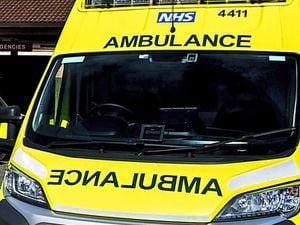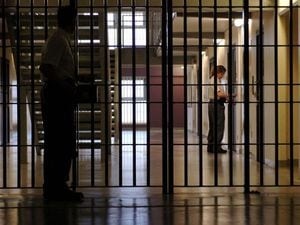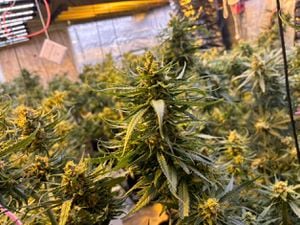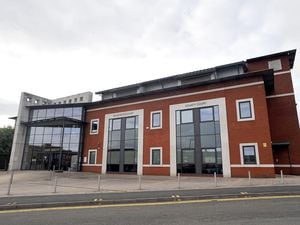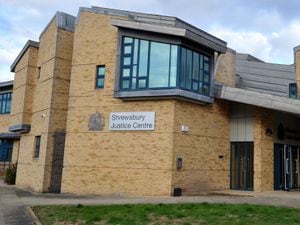'It is time for change': Ex-cop says recreational drugs should be legal
As a tough former undercover police sergeant, Neil Woods knows how badly drugs can damage communities.

He spent 14 years putting some of Britain's most dangerous drug dealers behind bars - including some from the West Midlands.
It may surprise you, then, that Neil is an active campaigner for legalising and regulating recreational drug use in Britain.
And his argument is an interesting one.
Neil, aged 49, spoke to the Express & Star this week – as a group of MPs suggested recreational cannabis could legalised in the UK within five years.
Having retired from policing, he is now a member of Law Enforcement Action Partnership, an international organisation which campaigns for a change in drug laws.
He argues that criminalising drugs actually empowers drug-dealers and fuels violence on the streets.
"It is far easier for our young to get hold of cannabis and other drugs than it is alcohol, because drug dealers don’t ask for ID," he said.
Like the 'Wild West'
"It is the Wild West out there. We need to get drugs under control to protect our young both from drugs and from the contact with criminal markets.
"Adult use has to be regulated to make our communities safer and to protect our young.
"Every drug is more harmful because criminals decide what goes in them and who they’re sold to.
"If you catch a burglar, burglaries go down, because there are a limited number of people willing to risk that crime.
"Arrest a drug dealer and you merely create an opportunity for two more. This opportunity is often fought over, and this is a major driver for violence on our streets."
His point is that the drugs black markets offers lucrative opportunities for criminals to make fast money.
Its creates a viscous cycle where drug-dealers only get bolder and more violent in order to evade the law.
And in turn the vulnerable in society are exploited to violence and the obvious, damaging, health issues from taking drugs.
'War on drugs'
These points are what he writes in his book Good Cop Bad War - a thrilling account on the frontline on what he dubs "the war on drugs".
"As a former police officer I can say that it is drug policy that has the big impact on communities rather that the drugs," he said.
"It is the illicit nature of the markets that cause the problem. Drugs are a health issue. By giving the market to organised crime, society has abandoned those people who need help with drugs to the exploitation of gangsters.
"Banning drugs has made them stronger, and more varied."
This week , the Express & Star revealed that West Midlands Police has seized almost £80 million of cannabis from raiding drug farms in the Black Country over the past five years.
That figure was an eye-watering sum. But this was dwarfed by the overall cost to the tax-payer. A whopping £1.4billion is spent on dealing with the impact of drugs in the West Midlands each year, according to the office of Police and Crime Commissioner David Jamieson.
Some of that cash is spent on police resources directly. And Neil argues that money is wasted.
"Police never reduce the size of the market," he said. "So that is not only wasted resources, it’s actually fuelling the increase in violence.
"That might seem counter-intuitive, but think about it, the police are just getting rid of the competition for the more successful gangsters.
"Before drugs were banned in the UK there was no link at all between drugs and crime. A different approach is overdue."
The tentacles of drug networks spread far and wide from inner cities into rural communities, such as Shropshire, in cases what have become known as county lines. Here, smaller criminals are recruited to run drugs for larger dealers.
He said: "I didn’t work in conventional policing in the West Midlands but I did investigate Birmingham gangs as an undercover operative.
"I put lots of Birmingham gangsters behind bars, but the next gangs are always willing to be more violent than the last.
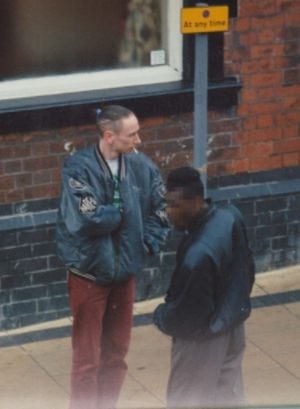
"County lines drug dealing exists because of police success. It is the natural strategic response to police catching the adult dealers. How bad do things have to get before we change direction? We can win this war by declaring peace. Trust me, the people who really don’t want that are the gangsters making the money."
In his career as an undercover police officer, Neil befriended and gained the trust of some of Britain's most violent criminals.
He took part in countless undercover operations around the country. But as time went on, from one operation to the next, Neil begin to see that the UK law on drugs was fuelling violence and social problems.
He became at odds with how the police and UK government approached this and left the police force.
He joined the UN-accredited Law Enforcement Action Partnership, known as LEAP UK in this country, which is made up of other like-minded people.
Neil added: "It’s not just me that observes this situation and is calling for change.
"We are police and wider law enforcement figures who have seen the chaos and futility of the drug war. And we are growing rapidly. When experienced voices from the frontline of the drug war we should be listened to."

